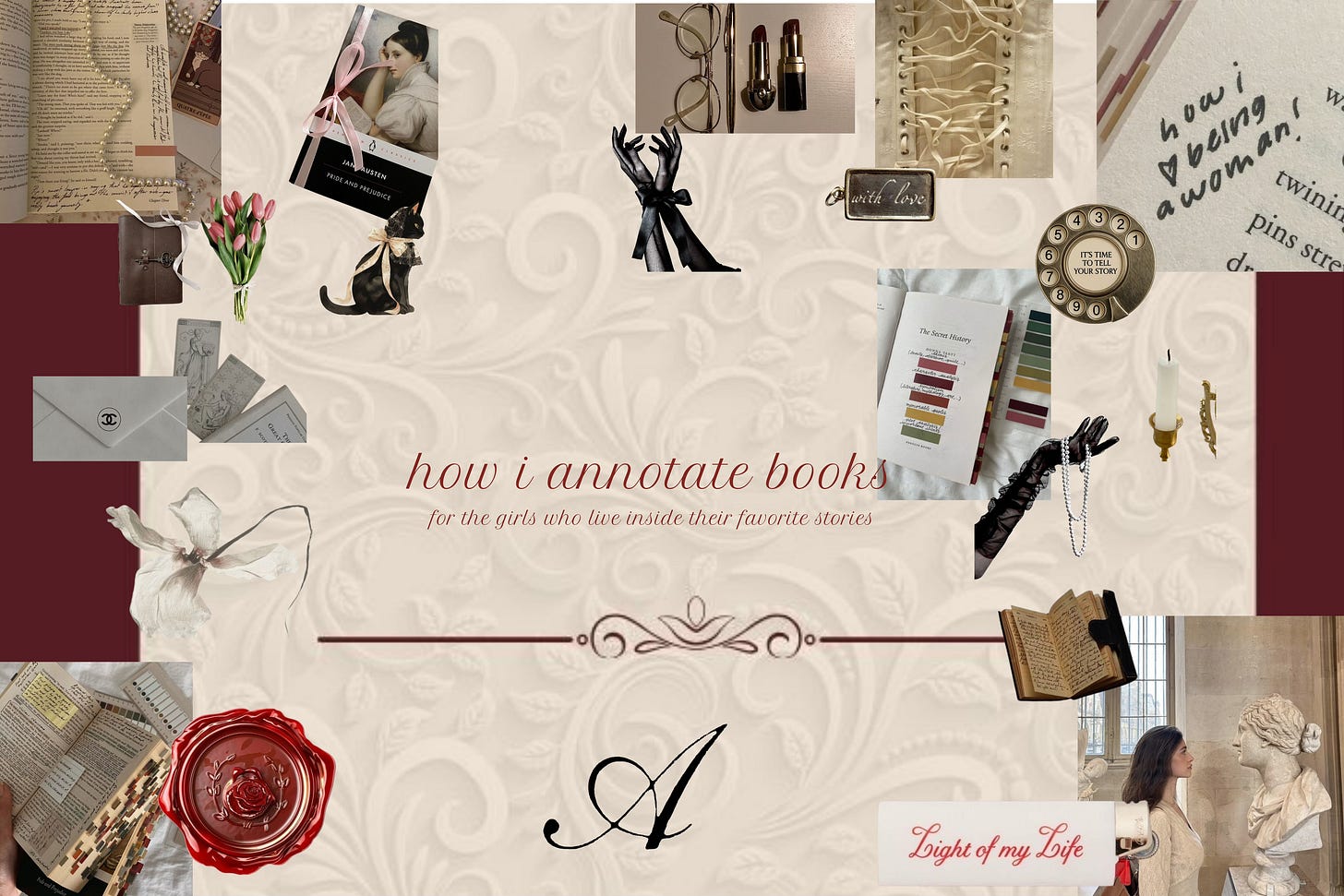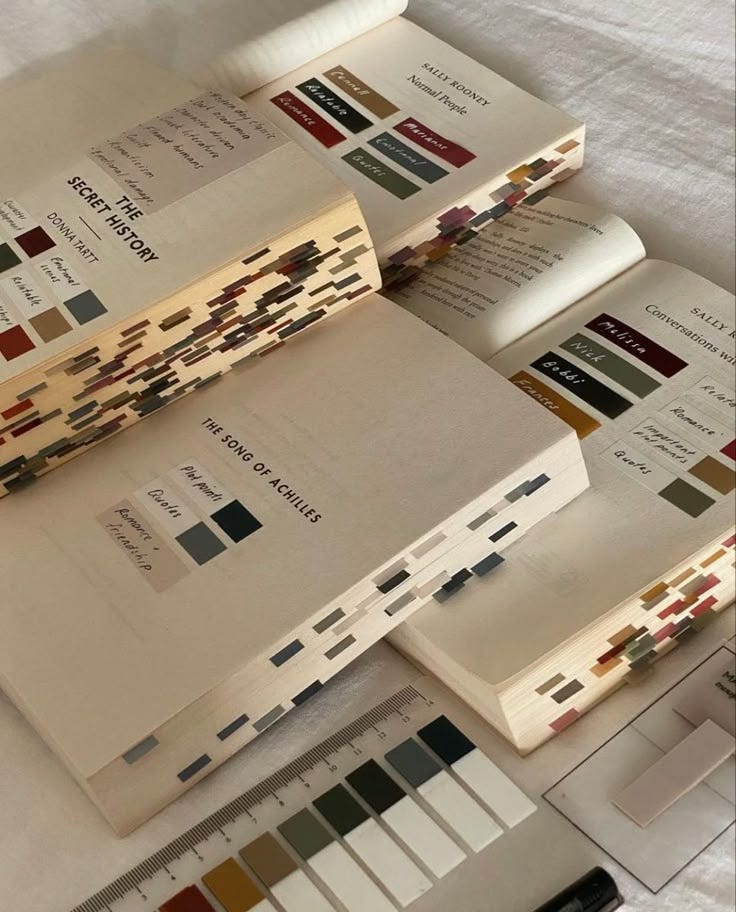how I annotate books (and why it saved me)
from escapism to literary analysis: on margins, memory, and marking the page
Hi, I’m Aurora ⭐ writer, survivor, and devoted annotator of life.
If you enjoyed this kind of deep-dive post, you might love becoming a paid subscriber. It supports my work and gives you access to my personal essays, book recs, and features like the weekly ribbon. Every paid feature has a present for you guys, with one or more digital products.
Or, if you’d like to support my mission more deeply, check out my Patreon, where I’ll be sharing behind-the-scenes notes and creative extras.
💌 Thank you for reading. It means more than you know.
Do you read your books, or do you live in them?
That’s the difference between simply reading and annotating/analyzing books. And there’s nothing I love more in this world than a book that was loved, with annotations in the margins, sticky notes, highlightings, little doodlings, underlines, etc.
When a book is in perfect condition, it’s like it belongs to the library or to the bookstore. But when it’s all annotated, it’s as if you’re saying ‘’You belong to me’’, with your memories, reactions, meanings, and baggage. It’s a way not just to read, but to live inside the book, to own the story.
And for those of us who’ve survived things we weren’t supposed to, writing in the margins isn’t just about books, it’s about making sure we were really there, that we made it. That we’re real. At least that’s how I always felt.
What’s fun is that when you revisit the book, you can read what past-you annotated, and you can see how much you changed, how much you grew. If you have a favorite book, you can buy multiple editions and annotate them through the years, and later you can read how different they are. It’s fascinating! When we compare yourselves to our past selves, we never think we changed that much, but if you do that, you’ll see how much you did.
The conception that you can only annotate high literature is not accurate at all. Yes, you can analyze the classics, and doing so it’s a lot of fun. But you can also just annotate to be inside the story, to remember things, to be within the book. For example, I love annotating fantasy books. It’s not like they are high literature, but it’s fun. I love writing my reactions on the page ‘’oh my god’’ ‘’no she didn’t!!!’, marking important things that happen, or cutesy scenes, or brutal ones. It’s just about having a good time. And since I started doing that, I have a much better memory of the stories I read.
As a teen, I used to devour books. My life was unbearable, so all I did was read so I could escape my reality a little bit. Reading to escape was not just my coping mechanism; it was survival. It was how I kept myself sane. In a world where I was getting abused at home and bullied at school, everything felt like it was too much, too loud, too complicated. But every time I opened my Meg Cabot’s book or my Twilight book, things seemed more tolerable. The Princess Diaries, especially, was so important to me. It made me hopeful that if even Mia could be a princess, then maybe there was hope for me, too. All my heroes, Mia, Bella, etc., were weirdos but surprisingly beautiful and wanted by everyone. That’s how I wanted to be. It’s funny. I loved romance novels, which doesn’t make sense to me, because now I can’t stand them. But these books saved me.
However, I don’t remember most of them, because I had this obsession with keeping them pristine. I couldn’t highlight them, nor annotate them. When their spines broke, I felt so sad. Somehow, it was like these perfect books mirrored me, and my silence, my obedience. No marks, no voice of my own. Maybe this was my way of coping with all the things I was dealing with at the time, but at one point, I called it enough. And a whole world opened for me.
I first let myself annotate in my late teens. I’d allow myself to add sticky notes to some parts I wanted to remember, and I kept this up for a while. And then in my early twenties, I started annotating with a mechanical pencil very slowly and carefully, and that felt… amazing. Talking back to the book felt incredible, like this was the right way to read a book. It’s like I’m having a conversation, a relationship. And when I don’t annotate, the silence is deafening.
My annotating essentials: what I use and how I use them
I’m someone who’s always been in love with stationery, so I’m not a minimalist. But please, don’t think you need all these tools to annotate. You only need a pen and paper. But all these things make the process a little more fun and aesthetic. I’ve been building my own annotating ritual slowly over the years, but now it’s something that brings me joy and makes me feel connected to the story. Here are the tools I used the most, and how I use them.
1. sticky notes
My first love. I use them for so many things! Quotes I want to return to, cutesy moments, or random thoughts that feel too long to write in the margins. I often layer them, and each color has a meaning.





